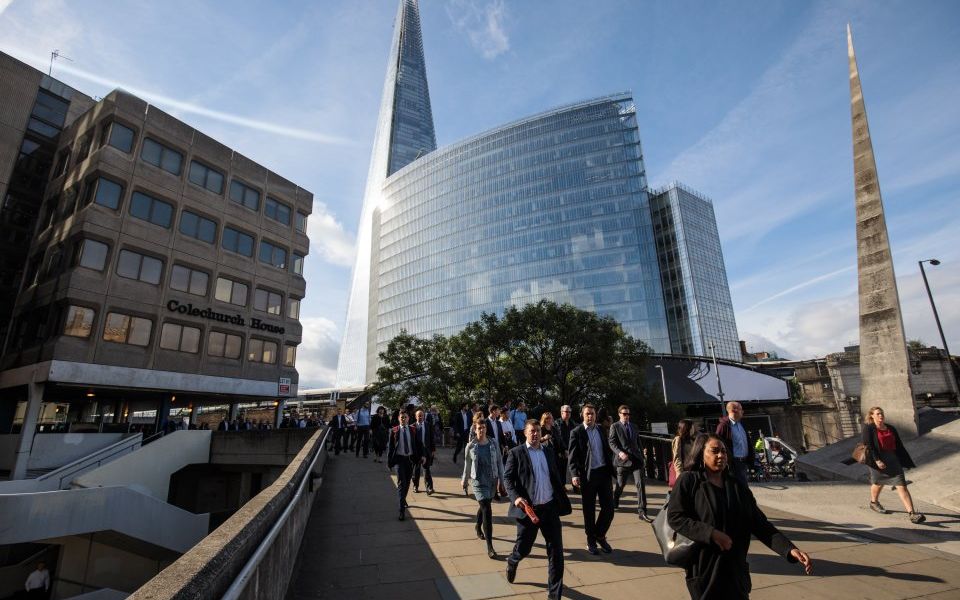Business groups welcome call for end to high-skilled cap but concerned on lower-skilled limits

Business groups today welcomed recommendations to scrap a cap on high-skilled workers in a major report commissioned by the government, but expressed serious concerns over the call for a limit on lower-skilled workers.
Jane Gratton, head of business environment and skills at the British Chambers of Commerce, said: “From the perspective of businesses facing severe skills gaps, the MAC’s report gives with one hand and takes away with the other, and the recommendations are unlikely to meet the needs of all employers.
“Any sudden cut-off of EEA skills and labour would be concerning, if not disastrous, for firms across a wide range of regions and sectors.
Read more: Major report recommends end to migration cap for highly skilled workers
The view from the Square Mile
City groups for the most part welcomed the report’s findings, particularly with regard to the call for more flexibility for higher-skilled workers.
Miles Celic, chief executive at TheCityUK, said: “The Migration Advisory Committee is absolutely right to call for an end to the Tier 2 visa cap for skilled workers. This policy has proven needlessly restrictive and holds back growth and innovation across the economy, particularly in areas outside London.
“The UK’s ability to attract, retain and develop global and domestic talent has long been a competitive advantage. Ensuring this continues is vital for Britain to maintain its position as a world-leading international financial centre.
The banking and finance sectors are particularly reliant on EU workers, filling 17 per cent of jobs, said Catherine McGuinness, policy chairman at the City of London Corporation.
She said: “Access to global talent is a critical issue for the financial and related professional services industry. More than one in four people working in banking and finance in London are non-UK citizens, with EU citizens helping to fill almost 17 per cent of jobs across the sector.
“Businesses need to be able to employ the right people in the right location. This matters for fast-growing fintech firms requiring specialist coding expertise, as well as more established international institutions looking to transfer highly skilled staff in to the UK for specific projects.”
London calling (for more low-skilled workers)
Think tanks and industry groups in the capital expressed concerns about potential limits on lower-skilled workers.
Colin Stanbridge, chief executive of London Chamber of Commerce, said: “There has been a failure by the MAC to recognise the full value and benefit of migration to London.
“We, along with others, advocated that, due to its unique migration footprint, a new UK immigration system should have a degree of regionalisation. However, the MAC report has advised against that.”
Richard Brown, research director at the Centre for London, said: “This report highlights the positive contribution that highly skilled EU workers bring to London’s economy. Yes we need bankers, lawyers, tech specialists, but we also need low skilled workers too.
“Nearly 30 per cent of London's construction workers are from the EU. A huge number of European workers keep the city's cafes, restaurants and hotels running. London's design, artistic and tech start-ups benefit from London's ability to draw workers from across the continent.”
The biggest change in a generation
Love it or loathe it, if implemented the recommendations would represent “the biggest change to the UK labour market in a generation,” said Stephen Clarke, senior economic analyst at the Resolution Foundation.
Firms should start looking at ways to boost their use of productivity-enhancing technology and their recruitment of Britons from harder-to-reach parts of the UK, he added.
“If enacted these proposals would effectively end low-skilled migration, while prioritising mid- and high- skill migration in areas where we have labour shortages. This would represent a huge shift for low-paying sectors like food manufacturing, hotels and domestic personnel, where over one in five workers are migrants.”